 Here is your click
Here is your click
 Here is your quiz
Kamelya
Here is your quiz
Kamelya
Due to a severe case of cat flu, poor Kamelya has lost both her eyes!

 This campaign succeeded, it has been delivered on the 01/11/2023, discover the delivery pictures.
This campaign succeeded, it has been delivered on the 01/11/2023, discover the delivery pictures.
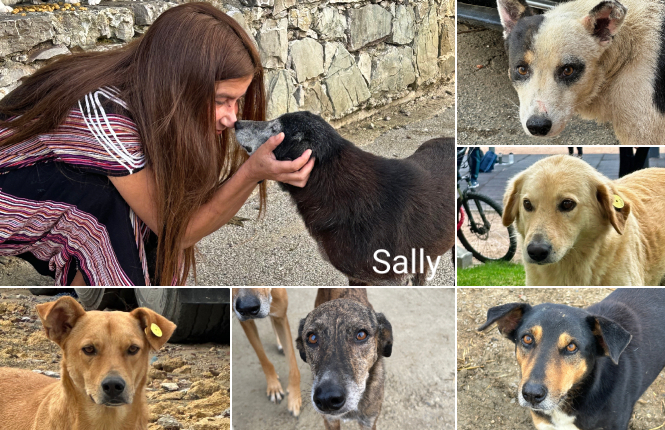
2,000 kg
Dry food offered
2,000 kg
Dry food necessary
Participate in confidence
Animal Webaction visited the site 26 October 2023 and confirms the situation described below.
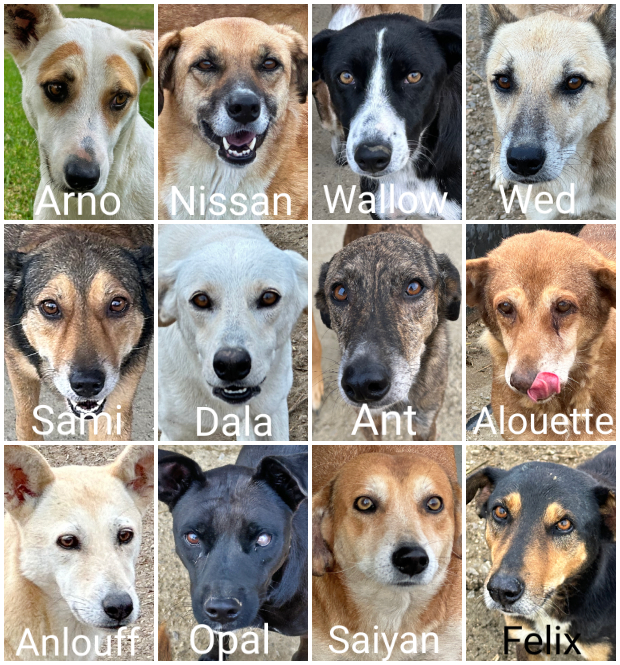
"Money is tight right now, making it hard to buy enough kibble for the dogs in the shelter and those living on the streets. I've tried to stretch what kibble I have by giving the dogs smaller portions, but this isn't a good solution. The dogs are getting skinny and weak, and you can see it in their eyes and how they move. Some are even starting to get sick because they don't have the strength to fight off germs.
All this makes it hard to focus on other important rescue work. Finding new homes for the dogs or getting them medical treatment takes a backseat because feeding them is the most urgent issue right now. The saddest part is watching the problems get worse day by day. What's happening now could undo years of effort to help these dogs..."
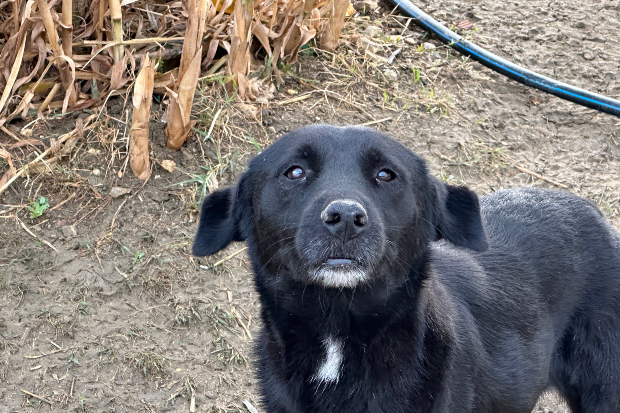
"The shortage of kibble is a big problem, affecting the health of the dogs in the sanctuary and on the streets. Some of the dogs are starting to fight over the little food there is. This is dangerous and could lead to injuries. Without enough kibble, parasites like ticks and fleas could also become a major concern. These parasites can make the already weak dogs even weaker.
The lack of kibble has also made it easier for contagious diseases to spread among the dogs. Even simple sicknesses, the kind that wouldn't be a big deal normally, can become very serious for these frail animals. It's hard to think of all the things that could happen quickly if we don't find a solution.
This campaign is a matter of life and death! If we run out of kibble completely, the dogs could starve to death... This crisis is also emotionally draining for me, making it even harder to find solutions. The risk is real: if things don't change, years of hard work to rescue and care for these dogs could be lost."

"The situation is critical. I've tried buying kibble in large amounts to save money, but it's hard to keep that up with limited funds. I've applied for grants that could help buy more kibble, but funds are still pending. The local government could be a help, but no approach was ever successful and dealing with them takes too much time because of all the paperwork.
I also tried to set up charity events, but these didn't bring in much, and auctions of donated items barely made a dent in what's needed. Even making a documentary and talking to the media didn't solve the problem. All of this is slowing down other important rescue activities.
But what weighs most heavily are the lives of the dogs. They rely on me for food, and I'm running out of kibble to give them. The dogs are not just numbers; they have faces, names, and needs. And right now, those needs are not being met. If this continues, I fear that much of the work done to save these animals will unravel. It's a desperate race against time."

"The kibble shortage jeopardizes the very existence of the sanctuary. If the dogs don't have kibble, their chances for survival diminish, and that means the sanctuary, their safe space, could close down. On top of that, without enough kibble, it's impossible to provide newly rescued dogs with a stable environment. They come in, scared and hungry, and kibble is the first step in showing them they're safe now.
The shortage also trickles down to how people perceive us. Our public awareness campaigns and social media updates are losing their impact. If we can't show that the dogs are thriving, how can we expect anyone to support us online or think about adoption? Adoptions have stalled because health standards can't be met without a steady kibble supply. The veterinary stations are also wary of extending more credit because we already owe them.
This isn't just about us. It's about the dogs who won't be rescued in the future if we don't figure out the kibble situation now. The dogs are the ones suffering the most, and the clock is ticking."
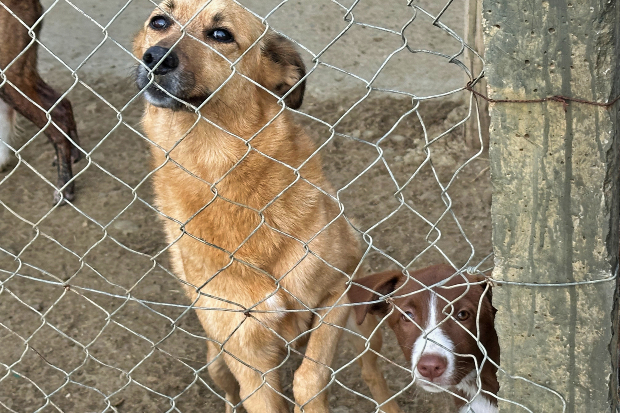
"Taking care of so many dogs day after day is very difficult, but the real struggle is the isolation. Tasks that should be straightforward, like arranging transport or medical care, turn into herculean challenges. It's not just about logistics; it's also the culture here in Morocco that adds layers of difficulty. Stray dogs don't always garner sympathy or support, leaving me to be not just the caregiver but also the fundraiser and advocate.
The absence of a reliable network magnifies each obstacle. Whether it's coordinating vet visits or raising awareness, I often find myself walking a solitary path. That solitude is made even more pronounced because animal rescue isn't something on most people's radars here. The limited local support means I bear the brunt of each challenge, be it logistical or emotional.
This isolation isn't just draining; it's a looming threat to the future of these dogs. As each day passes, the monumental tasks mount, and the lack of resources becomes more acute. It's a situation that's escalating, pushing us all closer to a point that none of us can afford to reach."
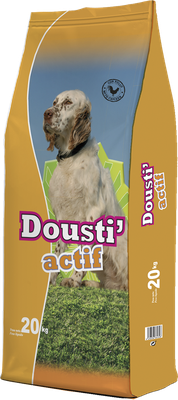
Animal Webaction has a logistics centre in Morocco, which allows us to intervene quickly and deliver kibble.
When a campaign fails, Animal Webaction cannot deliver the products. The beneficiary doesn't receive anything and the buyers are refunded.
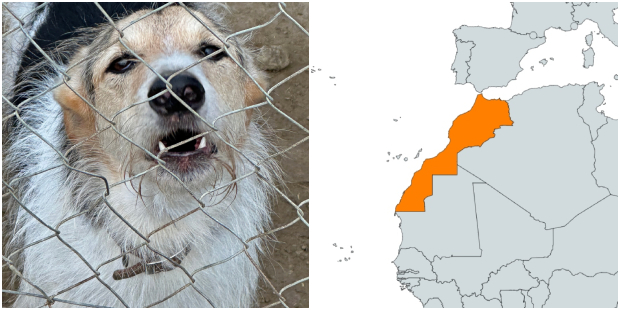
If you know of a foundation or NGO that could help Sally, please invite them to contact us so that we can put them in touch.
If you represent an animal welfare foundation or NGO, please help Sally's dogs. Contact us and we will put you in touch!
If you would like to visit Sally's shelter to help her, or if you would like to directly send her some kibble or a cheque, please contact Sally via Facebook (note: direct help is made under your own responsibility).
|
|
|
|
|
Safe payment 100% safe payment via PayPal or credit card |
Verified action We've carried out checks on this action, Animal Webaction visited the shelter
|
Sending kibble The shelter won't receive any money, only the kibble bought on its behalf |
|
|
|
|
|
Delivery tracking We will keep you posted and you will receive delivery pictures |
Satisfied buyers Our satisfaction rate is 98% (read our 757 Facebook reviews) |
Expertise Animal Webaction partners with 1000 animal welfare associations in 15 countries and has been existing for 10 years |
 Maroc
Maroc